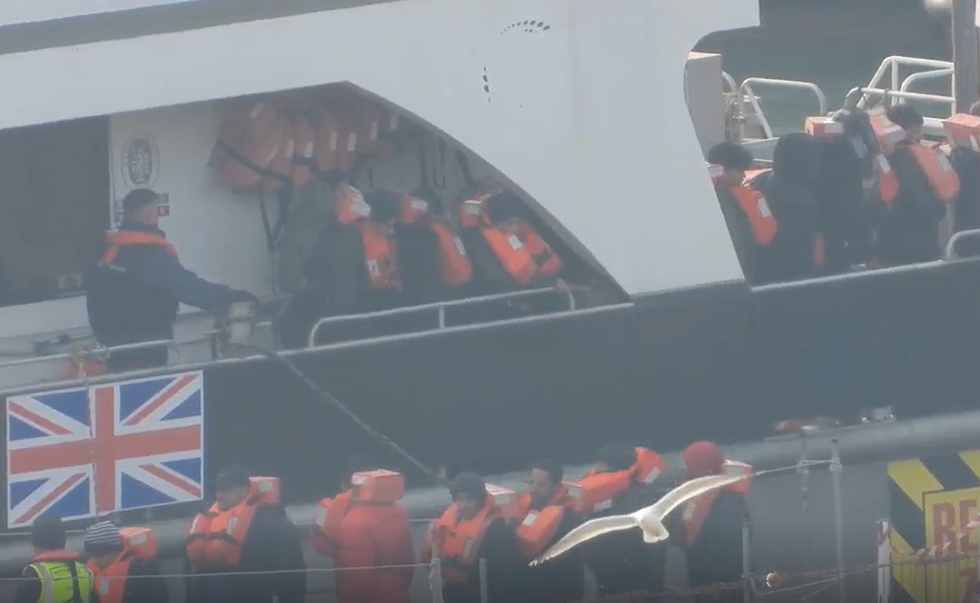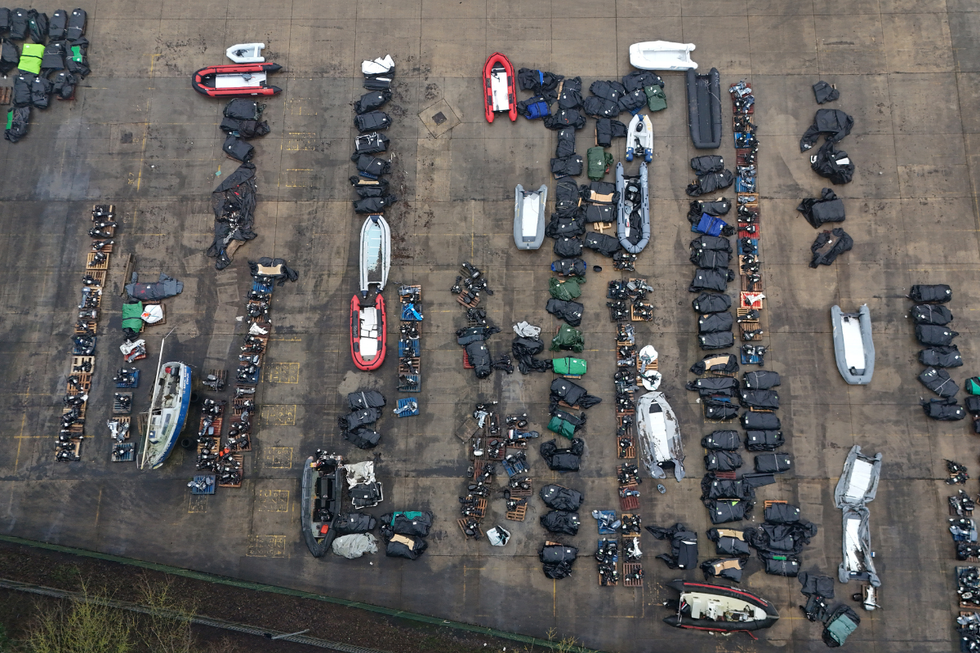Alex Armstrong reacts to migrants being given cheaper rates on crossing the channel if they document their journey for social media
GB News
Over 1,200 Eritreans are thought to have crossed the Channel in the first three months of 2025
Don't Miss
Most Read
Trending on GB News
A fifth of all migrants crossing the channel are Eritreans, it has been revealed.
This number has overtaken Afghans, who previously made up the largest number of migrants crossing in small boats.
According to figures seen by The Times, over 1,200 Eritreans crossed the Channel in the first three months of 2025.
Meanwhile, over 800 Afghans have arrived this year so far.

According to figures seen by The Times, over 1,200 Eritreans crossed the Channel in the first three months of 2025
GB News
Eritreans made up a fifth of the 6,642 migrants who crossed in small boats this year, with their numbers nearly tripling compared to last year.
Almost 5,500 Eritreans were staying in taxpayer-funded accommodation in the UK, with half of them residing in hotels.
The surge in demand from migrants has led to several Eritrean gangs becoming involved in the illegal small boat trade.
Intelligence reports gathered for the Home Office and the National Crime Agency (NCA) have revealed an increasing presence of Eritrean traffickers operating on both the French and British coasts.
MORE LIKE THIS:
- Asylum hotels vow to EVICT migrants after Home Office ditches provider - 'No payment, no option!'
- 'We'll stop it!' Reform UK sets out grassroots plan to shut £5bn asylum hotels as Labour loses grip on migrant crisis
- EXPOSED: Damning Home Office immigration failures seen by GB News - fears of widespread visa exploitation
Felix Sinclair, who heads the NCA unit responsible for gathering intelligence on people-smuggling networks, stated that Eritrean organised-crime groups seemed to have a good relationship with the Kurdish gangs, who dominate the trade in northern France, as they were able to supply large groups of people on short notice.
He said: “We’ve seen some Eritrean traffickers operating. It’s quite early to say with certainty but we’d probably put that down to the demand linked to Eritrean migrants.”
The NCA and Border Force suspected that some migrants claiming to be Eritrean are actually Ethiopian, because they share close ethnic and linguistic traits.
The migrants were reportedly told by facilitators to say they were Eritrean to increase their chances of being granted asylum, as the rate was 87 per cent compared to 58 per cent for Ethiopians.
Major General Duncan Capps, head of the small boats operational command, explained that the rise in Eritreans crossing the Channel was part of a broader trend of poorer migrants making the journey.
He noted that the influx of less affluent migrants, compared to their relatively wealthier counterparts from countries like Afghanistan, Vietnam, Iraq, Syria, and Albania, had led to a decrease in prices.
However, smugglers are packing more people onto boats, making the journeys growingly dangerous.
Last year the Channel saw 78 migrant fatalities - the deadliest ever.

The average number of migrants per boat in the 119 recorded crossings this year was 56, up from 53 last year and 49 the year before
PAThe average number of migrants per boat in the 119 recorded crossings this year was 56, up from 53 last year and 49 the year before.
There were also growing numbers of migrants who could not afford to pay and were forcing themselves onto the boats as they left the northern French coast.
Capps said migrants coming from poorer countries in central and sub-Saharan Africa were often put into slavery on the way through to the Channel to work their way through the journey.
He added: “But, because they get here with very little money, they are either paying low amounts, which means the facilitators put a lot more people on — so we’ve seen the average occupancy go up — but they are also surging the boats. That’s the piece that caused, towards the end of last year and the beginning of this year, so many fatalities.”
The rise of Eritrean people-smuggling gangs on the French and British coasts has been a topic of discussion at the weekly meetings chaired by Home Secretary Yvette Cooper.
These meetings, which involve Border Force, the NCA, and intelligence agencies, focus on strategising efforts to counter the evolving tactics of traffickers.
According to a Home Office source, the aim is to target new gangs "swiftly and decisively before they can establish themselves."
Magnus Taylor, deputy director of the Horn of Africa project at the International Crisis Group, a think tank, stated that while there are already numerous reasons for Eritreans to leave their country, the potential for a new war with Ethiopia over its attempts to seize a port on the Red Sea coast would drive even more people to flee.







